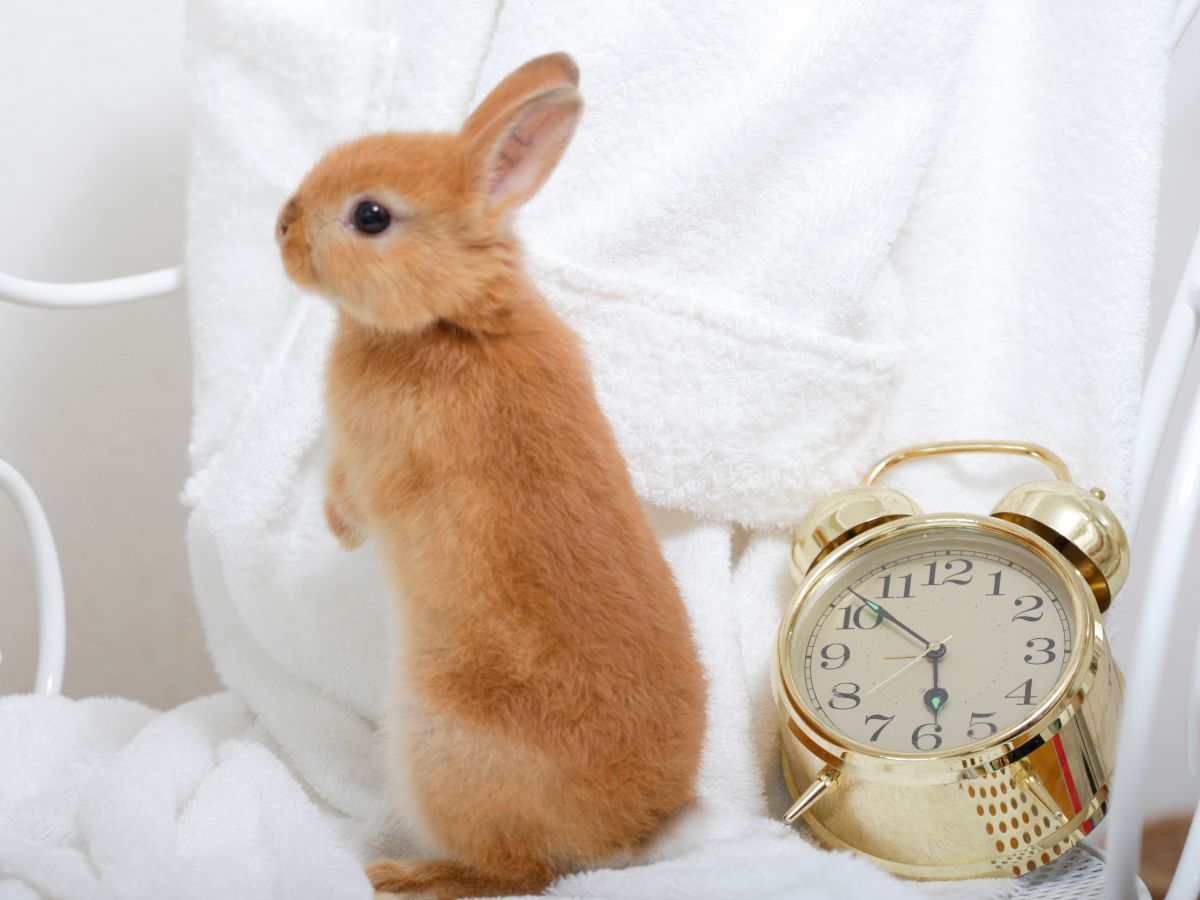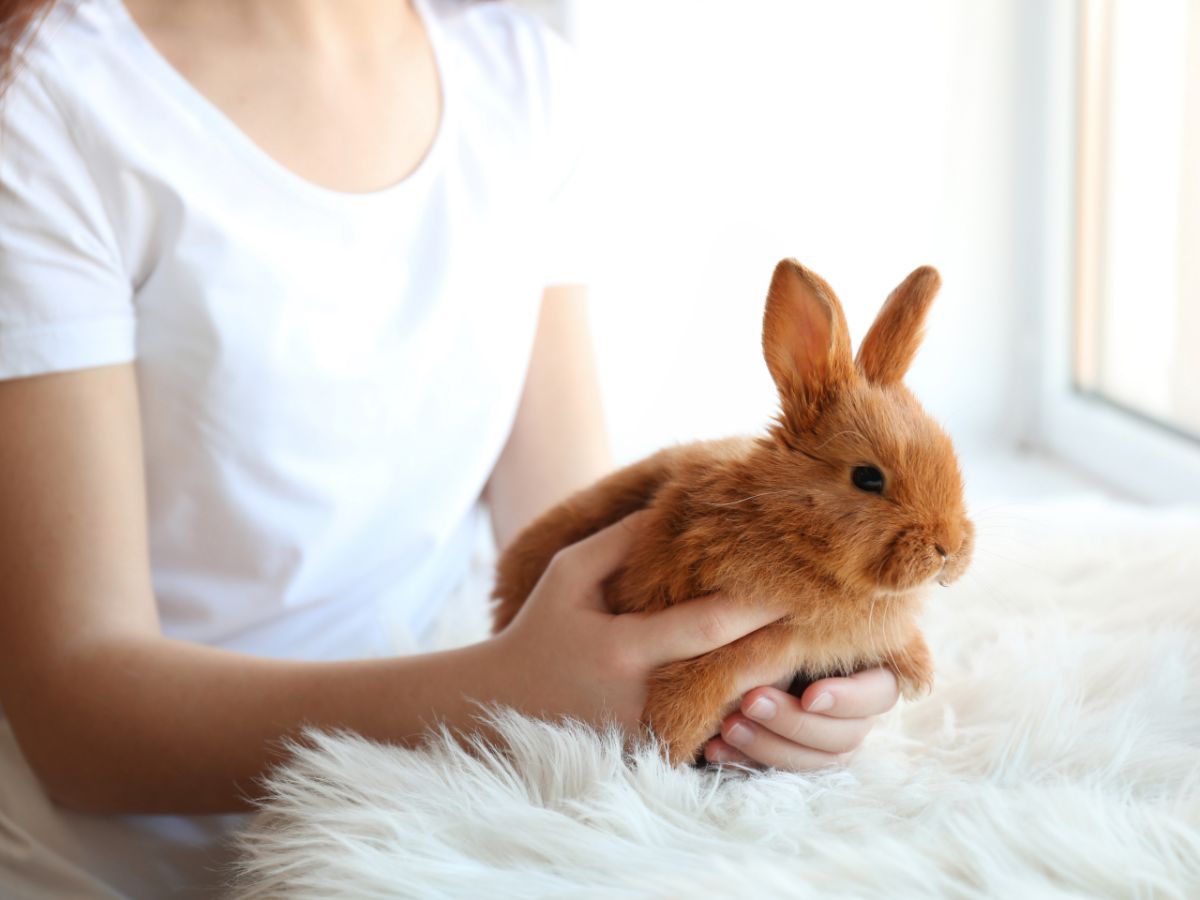Suppose you are a breeder or recently rescued, adopted, or bought a baby bunny as a pet. In that case, there are things you should know about raising bunnies to ensure you raise a healthy, happy animal. Baby bunnies are adorable and a pleasure to raise.
Raising baby bunnies starts with providing for their basic needs. Their basic needs include nests, food, water, a safe cage, protection from extreme temperatures, protection from predators, and even their parents. There is no difference between raising pet bunnies, rescued bunnies, or adopted bunnies.
Raising baby bunnies may not seem complicated, but remember that they are small, helpless, and vulnerable until they reach weaning age. In addition, orphaned or abandoned baby bunnies need extra care and attention to survive without their mother.
Contents
Raising Baby Bunnies
All baby bunnies are raised in the same manner except if they need to survive without their mother. If you need to raise orphaned or rescued bunnies, you must be aware of their needs to save and raise them. If the doe is a present mother, raising the baby bunnies will be her responsibility until they get weaned at eight weeks old.
Raising Baby Bunnies Along With Their Mother
The best way to raise baby bunnies is with the help of their mothers, who cares for them until they wean. Weaning can happen any time between four to eight weeks, depending on the size of the rabbit, the breed, and the breeder’s preference. However, baby rabbits can only wean once their diet completely switched from milk to pellets and fresh food.
The doe is removed from her original cage, leaving the baby bunnies behind. The baby bunnies are kept together to lessen the stress of being without their mother. From here on forward, they change to a complete diet. When the bunnies finish their meal within twenty to thirty minutes, they are considered fully weaned. After being weaned, they need to fend for themselves.
Raising Bunnies During Winter
Winter presents challenges when raising baby bunnies, but their mothers tend to them effectively by covering them with straw and fur, keeping them warm. Bunnies do much better in cold temperatures than during scorching summer, but there are a few things to tend to in keeping them comfortable during winter.
It would be best if you ensured that their nests were safe from wind drafts. Cover the nests with tarps over and underneath to prevent any wind from entering the nests. Bunnies can manage the cold, but windchill is hazardous to their health.
During sub-zero temperatures, the water in their water bowls will freeze, and it is essential to see that they have drinkable water at least twice a day. The easiest is to replace the “water nipples” with ceramic or silicone bowls filling them up with fresh water twice a day. The bunnies will take their fill, and even if the water in the bowls freezes, they will be able to wait for another fill later during the day when you replace the frozen water.
Until they wean between six to eight weeks, the baby bunnies will be safe, cared for, and fed by their mother.
The adult rabbit’s fur is warm enough to keep them comfortable and safe throughout winter.

Raising Orphaned Or Rescued Bunnies
Bunnies are born undeveloped, meaning they are born without fur, with closed eyes and ears, and unable to walk or feed themselves. If these small animals are left to fend for themselves, they will stand no chance of surviving.
Suppose a doe gets pregnant before she has time to develop motherly instincts. In that case, she may abandon her babies for not knowing what to do. In other cases, the mother may die when giving birth due to illness or natural causes, leaving the babies orphaned. These babies need to be rescued and cared for as soon as possible.
Depending on the age of the orphaned baby bunnies, they may need to be warmed up as soon as possible. The easiest way is to put warm water bottles in their cage to heat their environment. However, be careful not to let them close to the warm bottles eliminating injuries or death.
Remember that they will need extra bedding to help them keep warm. In addition, you can use dryer lint or cotton to fill out the nest, keeping the bunnies warm and comfortable.
If these babies are abandoned for too long, without their mother feeding them, they will need to be hydrated and fed as soon as possible. People have fed baby rabbits with kitten formula or raw goat’s milk.
Kitten formula and raw goat’s milk are much easier to digest than cow’s milk. Consider using a syringe or eyedropper to feed the babies. The milk needs to be warmed. Otherwise, they may not want to feed on it.
After feeding them and ensuring they are warm enough, you need to examine them for injuries or ailments. It is best to have them examined and treated by a vet. The vet can assist with any additional information needed to raise the little rabbits.
Rescued rabbit babies can be released back into the wild from six weeks old.
Keeping Rabbits As Pets
After caring for and raising a baby rabbit, you may consider keeping it as a pet. Rabbits are becoming popular pet options due to their cuddly and playful natures. However, having the correct items is vital to providing a safe and healthy environment for your pet rabbit.
Following is a list of things rabbits need to be happy and healthy.
- A safe cage and nest.
- Rabbits need enough space to run around safely.
- Space for their food and water bowl.
- Provide a place for the rabbits to relieve themselves.
- Provide toys to keep rabbits occupied.
- Rabbits love blankets to crawl under to feel safe and warm.
- Hay should make out eighty percent of their diet, pellets, fresh food, and water.
- In the wild, rabbits live in groups; if you want to keep a rabbit, you must consider keeping at least two. They need companionship as they are social animals.
Conclusion
Successfully raising happy, healthy baby bunnies is lots of fun. However, it is more special if you manage to rescue baby rabbits and successfully tend to them until it is time to release them back into the wild.




